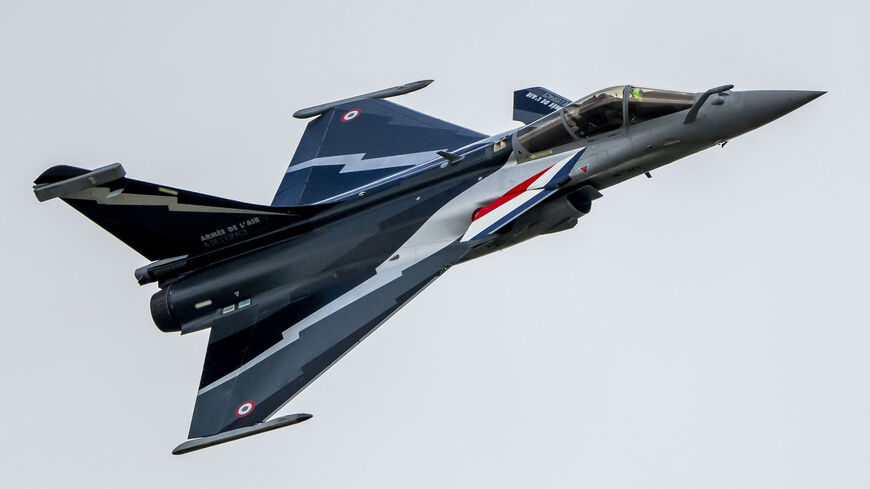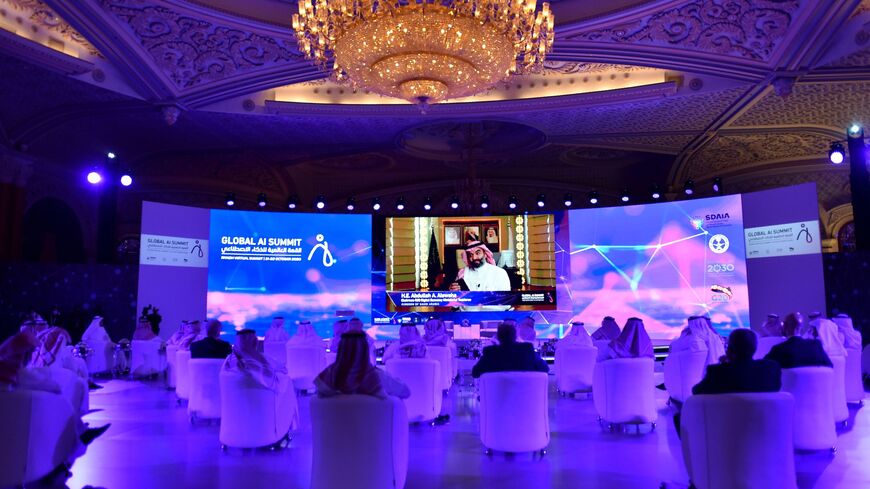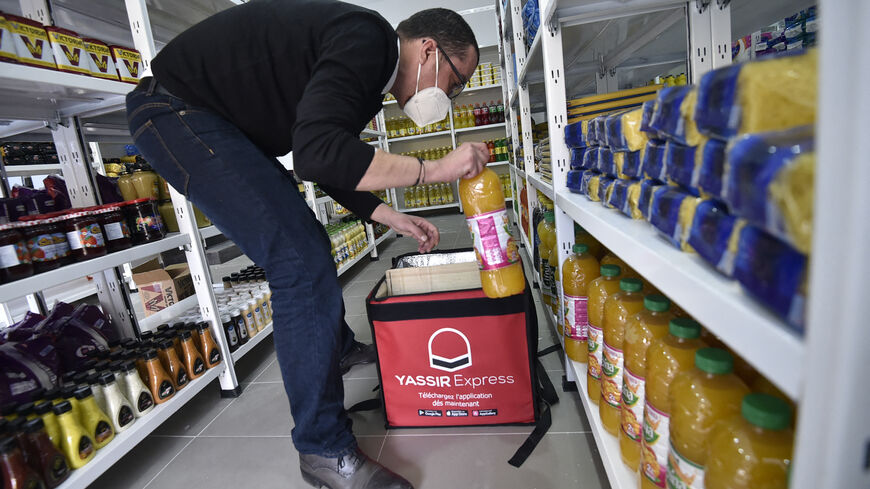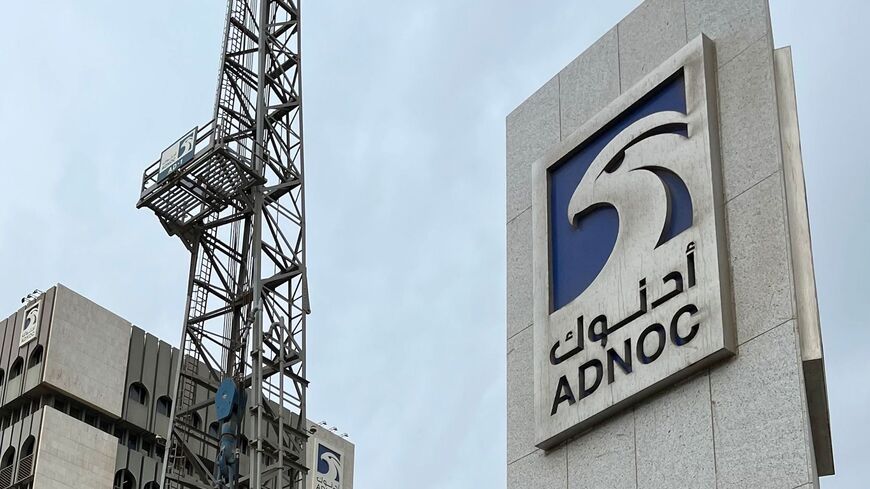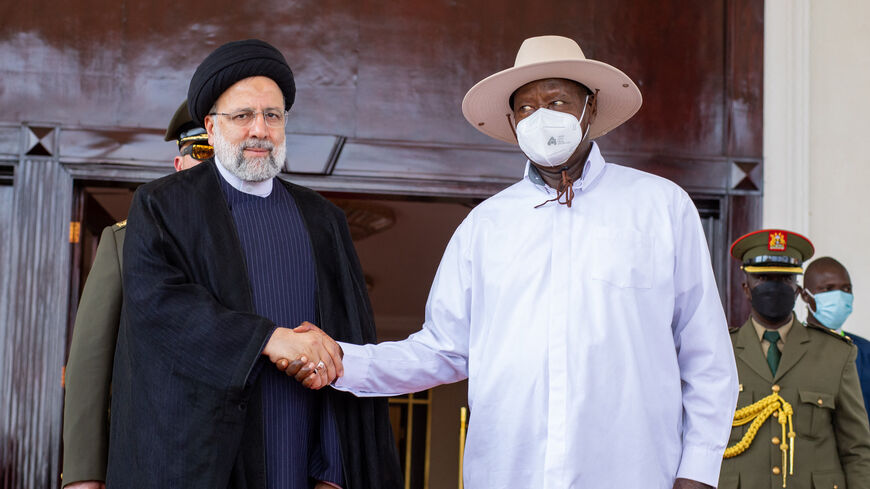Qatar’s record-shattering $300B World Cup bet will deliver returns, despite missteps
Al-Monitor Pro Members
Samuel Wendel
Senior Market Research Analyst, Al-Monitor
Nov. 21, 2022
Perhaps never before has a World Cup created so much scrutiny, intrigue and opportunity for its host country and the biggest winner (or loser) likely won’t be on the pitch in 2022. Qatar, a tiny gas-rich country of 2.9 million — with Qatari nationals comprising only about 13% of that number — is an outlier in World Cup history, as most hosts have been large and powerful nations. The Gulf state is compensating with outsized ambitions: The first MENA country to host has poured as much as $300 billion into tournament preparations, making it the most expensive World Cup ever. Underpinning these efforts are Doha’s goals of amassing influence and diversifying its economy.
However, hosting the tournament is an expensive gamble that could still misfire as controversy, economic turmoil and geopolitical tensions could undercut returns. But the World Cup has already provided significant global exposure and new infrastructure has transformed the country, so Qatar is positioned to capitalize, even if the ultimate World Cup return on investment still hangs in the balance.
- Figures vary, but some outlets have reported that Qatar has spent $300 billion on World Cup preparations since 2010. The previous record total invested by a host country belonged to Russia, which reportedly spent roughly $15 billion on the 2018 tournament.
- Alongside building seven new stadiums, Qatar’s preparations included investments into general infrastructure such as a new metro system, hotels and shopping districts, alongside a modern seaport and airport upgrades.
- Qatar expects World Cup profits to reach $17 billion, according to media reports. Looking ahead, Qatar’s real GDP growth is projected to fall from 4.6% in 2022 to 2.8% in 2023 amid a broad slowdown in the non-oil economy, according to Fitch Solutions.
- World Cup ticket sales approached 3 million by mid-October, according to FIFA. Many more will watch globally. The 2018 final between France and Croatia attracted over 1 billion viewers.
- In 2017, a coalition of Arab states severed ties with Qatar in a crisis that threatened to sink its economy and saw Qatar’s net foreign direct investment inflows fall from roughly $1 billion in 2017 to negative $2.19 billion in 2018, according to World Bank data.
- Qatar’s economy remained resilient and the blockade was lifted in 2021. To attract FDI, Doha began allowing 100% foreign ownership across sectors beginning in 2019.
- Qatar ranked 24th on Kearney’s 2022 FDI Confidence Index, the first year it has been included and one of two MENA countries listed. The United Arab Emirates ranked 14th.
- A post-tournament FDI rebound isn’t guaranteed. The three previous host nations didn’t enjoy a sustained FDI uptick following the event, according to World Bank Data.
- Leading up to the World Cup Qatar has drawn significant criticism for its human rights and treatment of migrant workers. Still, it hasn’t faced major boycotts. Big-name companies from Europe, the United States and China have signed on as sponsors alongside local firms such as Qatar Airways.
- However, tensions are still brewing: Mere days before matches started, Qatar banned stadium beer sales, a reversal calling into question FIFA’s control and jeopardizing its partnership with Budweiser. Crucially, it’s a broken promise that could see backlash from the very fans Qatar is trying to woo.
Scenario 1: The World Cup solidifies Qatar’s international credibility but fails to significantly boost its non-oil economy. The global exposure burnishes Qatar’s image and insulates it from further regional geopolitical tensions. But long-term economic benefits don’t emerge as expected, with Qatar struggling to transition to a knowledge-based economy. Meanwhile, gas production expands and keeps Qatar firmly dependent on hydrocarbons.
That said, Qatar can easily benefit from its new infrastructure. At a minimum, the stadiums can host future events, as sports is a growing sector in the Middle East. Plus, it’s an advantageous moment for Doha as a top LNG exporter, allowing it to invest further in economic diversification.
Scenario 2: Qatar’s World Cup investment is a pricey misfire. Bad timing, underwhelming attendance and negative fan reactions sink Qatar’s ambitions. A botched tournament damages its image, while a global recession in 2023 dampens tourism and combines with lingering geopolitical tensions to undermine business and investment, spoiling Qatar’s diversification goals.
Still, Qatar has already benefited from the World Cup. Its global profile has risen considerably since 2010 and infrastructure upgrades can provide lasting benefits. Neighbors like the UAE are also benefitting from spillover in World Cup tourism, which can aid in rapprochement. Plus, any World Cup financial burden shouldn’t sting too hard thanks to surging gas demand and expanding production.
Scenario 3: A successful World Cup delivers a vibrant diversified economy. The tournament helps spur new investment, trade and tourism, producing a windfall in non-oil revenue and influence in the coming years that helps establish Doha as a regional power center rivaling Dubai.
This is unlikely. Qatar won’t be able to recoup its enormous investments anytime soon while escaping the bad publicity arising from the World Cup will be difficult, potentially muting tourism aspirations. Despite rapprochement, Qatar’s ambitions may still irk regional rivals and upend ties.
Hosting the World Cup is a significant net positive, even if some ROI doesn’t materialize. Qatar is playing the long game and its audacious World Cup aspirations set it apart from previous hosts, making it difficult to compare ROI expectations. However, it’s an extraordinary nation-building opportunity for the tiny Gulf state and comes amid larger efforts to grow soft power. The global spotlight should provide an assist there, while increasing the likelihood of a lasting rapprochement with Gulf neighbors. Despite controversy and potentially damaging missteps — like banning stadium beer sales at the last minute — the tournament provides Qatar with a powerful platform to sell itself to the world, while deepening ties with important attendees, including world leaders and CEOs.
Yet Qatar still needs to successfully repurpose stadiums and leverage its new infrastructure to align with opportunities in tourism, business and future sporting events. Capturing significant growth from these moves isn’t guaranteed, but much of the heavy lifting needed to transition to a more diversified economy is now complete, setting up Doha to bury its ambitions in the back of the net if it can press its advantages.
Samuel Wendel is a senior market research analyst with Al-Monitor covering economic, tech and business trends across the Middle East. He has previously served as a journalist with Forbes Middle East and Wamda, where he reported on key industry developments spanning a range of sectors in the region.
We're glad you're interested in this memo.
Memos are one of several features available only to PRO Expert members. Become a member to read the full memos and get access to all exclusive PRO content.

Already a Member? Sign in
The Middle East's Best Newsletters
Join over 50,000 readers who access our journalists dedicated newsletters, covering the top political, security, business and tech issues across the region each week.
Delivered straight to your inbox.
Free
What's included:
Free newsletters available:
- The Takeaway & Week in Review
- Middle East Minute (AM)
- Daily Briefing (PM)
- Business & Tech Briefing
- Security Briefing
- Gulf Briefing
- Israel Briefing
- Palestine Briefing
- Turkey Briefing
- Iraq Briefing
Premium Membership
Join the Middle East's most notable experts for premium memos, trend reports, live video Q&A, and intimate in-person events, each detailing exclusive insights on business and geopolitical trends shaping the region.
$25.00 / month
billed annually
$31.00 / month
billed monthly
What's included:
Memos - premium analytical writing: actionable insights on markets and geopolitics.
Live Video Q&A - Hear from our top journalists and regional experts.
Special Events - Intimate in-person events with business & political VIPs.
Trend Reports - Deep dive analysis on market updates.
We also offer team plans. Please send an email to pro.support@al-monitor.com and we'll onboard your team.
Already a Member? Sign in


